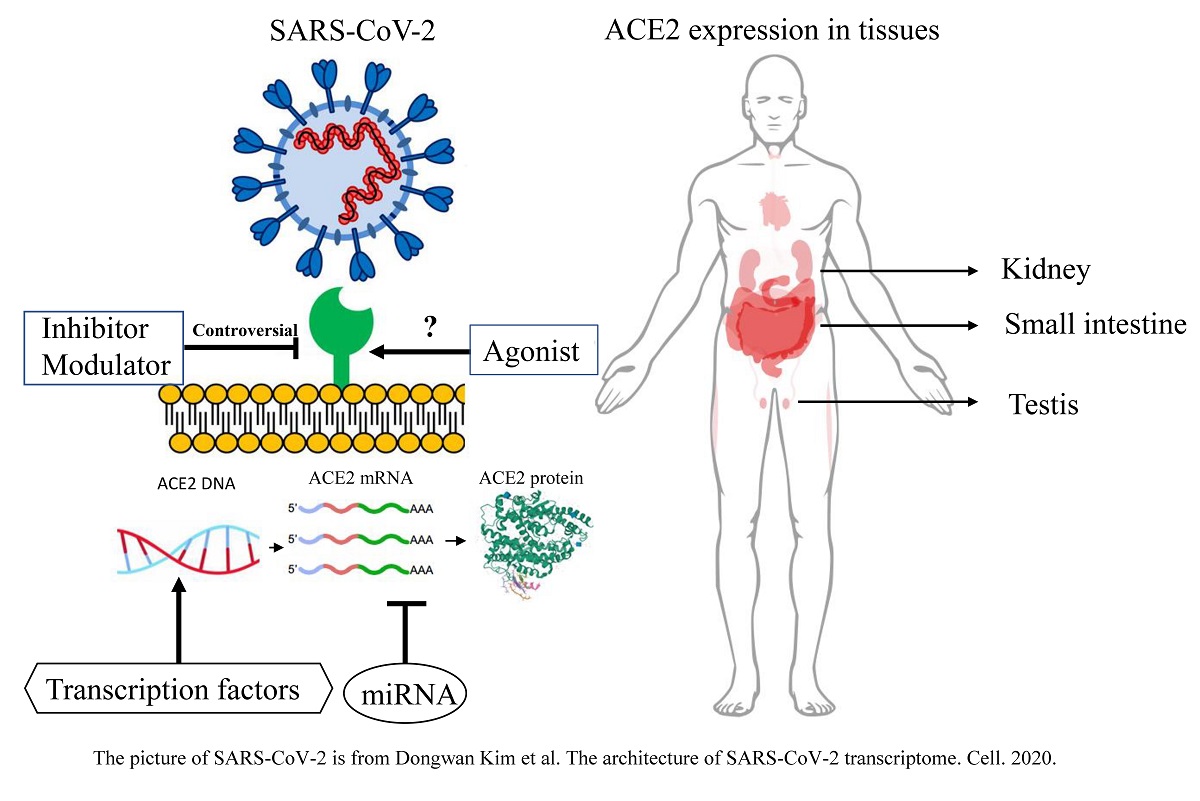Recently, the outbreak of coronavirus disease 2019 (COVID-19) is threatening human health globally. There is a dire need to find potential therapeutic agents. Angiotensin converting enzyme 2 (ACE2), as an entry receptor of severe acute respiratory syndrome coronavirus 2 (SARS-CoV-2), is considered as potential therapeutic target in COVID-19 pandemic. Here, our bioinformatics analysis revealed that the biological function of ACE2 was correlated with regulation of blood pressure and mediation of SARS-CoV-2 entry into host cells. Ten ACE2 cooperative proteins were identified by using STRING with a high score. ACE2 expressed highly in the small intestine, testis, and kidney. The level of ACE2 expression in tumor tissues varies in different types of cancers compared with that in normal tissues. It was worth noting that the expression level of ACE2 in the tumor has no effect on patient survival. MiRNA hsa-miR-942-5p, and three transcription factors (TFs) including Signal transducer and activator of transcription 4 (STAT4), Estrogen related receptor α (ESRRA), and Signal transducer and activator of transcription 3 (STAT3) were selected as novel ACE2 regulators. Moreover, nine potential therapeutic drugs were predicted by two online databases. Thus, our research may expand the overall view of ACE2 in COVID-19 treatment.

